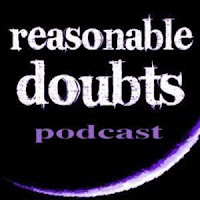Maya blue - the color of some old fashioned human sacrifice
 Here is a fascinating (yes, also grim) story about the motivation behind the making of Maya blue - ■
Here is a fascinating (yes, also grim) story about the motivation behind the making of Maya blue - ■The vibrant sky color can be seen on pottery, murals and other artifacts produced by the Maya people of Central America centuries ago and the unusual, durable pigment remains vibrant today long after other colors have faded away.It was also the color of Chaak, the rain god, and of human sacrifice.
When the skies looked too much like Maya blue — cloudless and dry — the Maya sometimes selected an unlucky victim to be painted this color and sacrificed to Chaak in hopes that the rains would follow.
And get ready - here is the description of the ritual:
An account by a 16th century Spanish priest described rituals where victims were stripped, painted and thrown onto a stone altar where their hearts, still beating, were cut out.Hmm...so whats for dinner tonight? Another interesting aspect of this story is that scientists didn't know about its composition until the 1960s (may be I'm the only who finds this story completely fascinating...):
The composition of Maya blue, first used around 300 A.D. and which is almost impervious to age, acid, weather and even modern solvents, remained a mystery until 1960s when chemists deciphered its chemical components: the dye indigo and a clay mineral known as palygorskite, which can be melded together by heat to produce the pigment.
What remained unknown was where and when the Maya made Maya blue. Was there a paint factory churning it out by the gallon? Or was it a secret recipe held tightly by the priests? Was it made at the mines where the palygorskite was dug out or was the palygorskite transported to the cities?
It turns out that indeed, Maya blue was produced as part of the ritual. And the clue came from a bowl that was dug up, along with other artifacts and 127 skeletons, from a natural  well called Sacred Cenote locate at Chichen Itza, Mexico (see picture on the right). The bowl was found in the early 20th century, but its analysis with electron tunneling microscope is more recent:
well called Sacred Cenote locate at Chichen Itza, Mexico (see picture on the right). The bowl was found in the early 20th century, but its analysis with electron tunneling microscope is more recent:
The three-legged bowl, dating from about 1400, contained a chunk of incense that was burned in Maya rituals. Within the incense, were bits of white and blue. Molecular-scale images taken by a scanning tunneling microscope showed these to be palygroskite and indigo.
Thus, the researchers concluded, Indigo blue was made as part of the ritual, the ingredients heated by the burning of incense. The pigment was then applied to pots and sacrifices before being thrown into the well.
Read the full story here.












.jpg)





0 comments:
welcome to my blog. please write some comment about this article ^_^